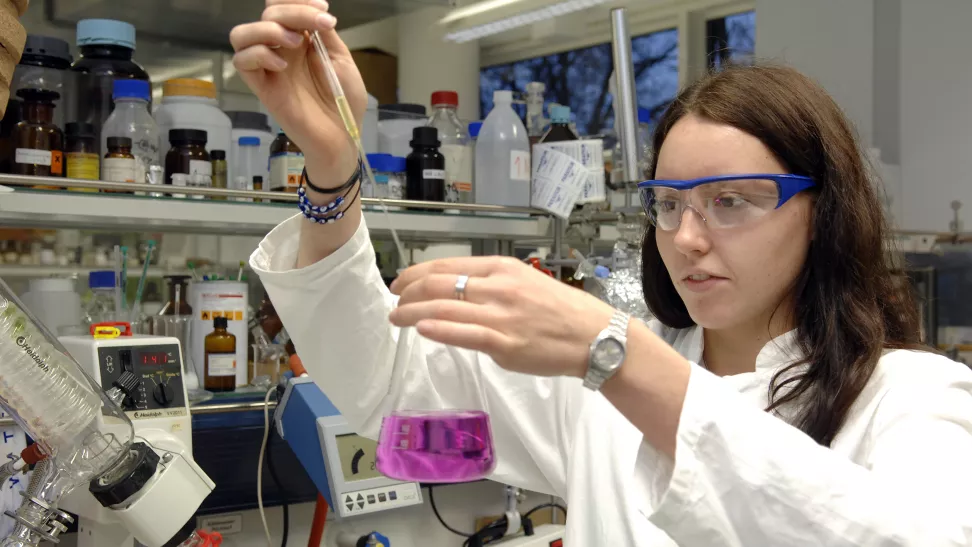
PhD positions in Germany
Employer
Germany Universities
Location:
Germany
Job Type
Fully Funded
Deadline
Throughout the year
About us :
Applying for a PhD position in Germany can be a challenging process, but with the right preparation and guidance, it's possible to secure a position that aligns with your goals and interests. Be sure to carefully review admission requirements and prepare all necessary application documents in advance, and don't be afraid to reach out to potential supervisors or university staff for guidance and support along the way.
Job Description :
Conducting original research in the field of study
Developing and implementing research projects
Collecting and analyzing data
Publishing research findings in academic journals and other publications
Presenting research findings at conferences and other professional events
Collaborating with other researchers and professionals in the field
Teaching and mentoring students, including undergraduate and graduate students
Participating in academic committees and other service activities
Qualifications:
Eligibility Criteria :
The eligibility criteria for PhD programs in Germany can vary depending on the program and institution. However, some common eligibility criteria may include:
Educational qualifications: Applicants should have a Master's degree or equivalent qualification in a relevant field. Some programs may also consider applicants with a Bachelor's degree or significant research experience.
Language proficiency: Many PhD programs in Germany are offered in English, so applicants may be required to demonstrate proficiency in English through standardized tests such as TOEFL or IELTS. Some programs may also require proficiency in German, especially if the research project involves working with German-speaking participants or materials.
Research proposal: Applicants may need to submit a research proposal that outlines their proposed project and how it fits into the field. The proposal should demonstrate the applicant's knowledge of the research area and their ability to contribute to it.
Letters of recommendation: Applicants may be required to submit letters of recommendation from professors or other professionals who can speak to their academic abilities and research potential.
Relevant work experience: Some PhD programs may require applicants to have relevant work experience in their field of study. This could include internships, research assistantships, or other relevant experience.
Academic achievements: Applicants should have a strong academic record with high grades and other achievements such as publications, awards, and research experience.
It's important to carefully review the eligibility criteria for each PhD program you're interested in to ensure that you meet the requirements. Additionally, some programs may have additional eligibility criteria, so be sure to check with the program or institution for specific details.
How to apply
Here are some additional details on applying for a PhD position in Germany:
Application deadlines: Deadlines for PhD positions in Germany can vary depending on the program and institution. It's important to research application deadlines early on and make sure you submit your application well before the deadline.
Funding and salary: Many PhD positions in Germany are fully funded, which means you'll receive a salary or stipend to cover your living expenses. The amount of funding can vary depending on the program and institution, but in general, PhD students in Germany can expect to receive around €1,200 to €2,000 per month.
Language requirements: While some PhD programs in Germany are offered in English, others may require proficiency in German. Make sure to carefully review language requirements for each program you're interested in and plan accordingly.
Required qualifications: In general, you'll need a Master's degree or equivalent qualification to be eligible for a PhD position in Germany. However, some programs may also consider applicants with a Bachelor's degree or significant research experience.
Research opportunities: Germany has a strong reputation for research excellence, and PhD students can take advantage of a wide range of research opportunities in their field. Many PhD programs also offer opportunities for international collaboration and networking.
Work permit: Non-EU students will need a work permit to pursue a PhD in Germany. You can apply for a work permit along with your student visa application, or you can apply for a work permit separately once you arrive in Germany.
Several websites that help you to find your PhD posision in Germany
Overall, pursuing a PhD in Germany can be a rewarding and challenging experience for students who are passionate about research and learning. Make sure to carefully research potential programs and institutions, review application requirements, and prepare your application materials well in advance to increase your chances of success.





